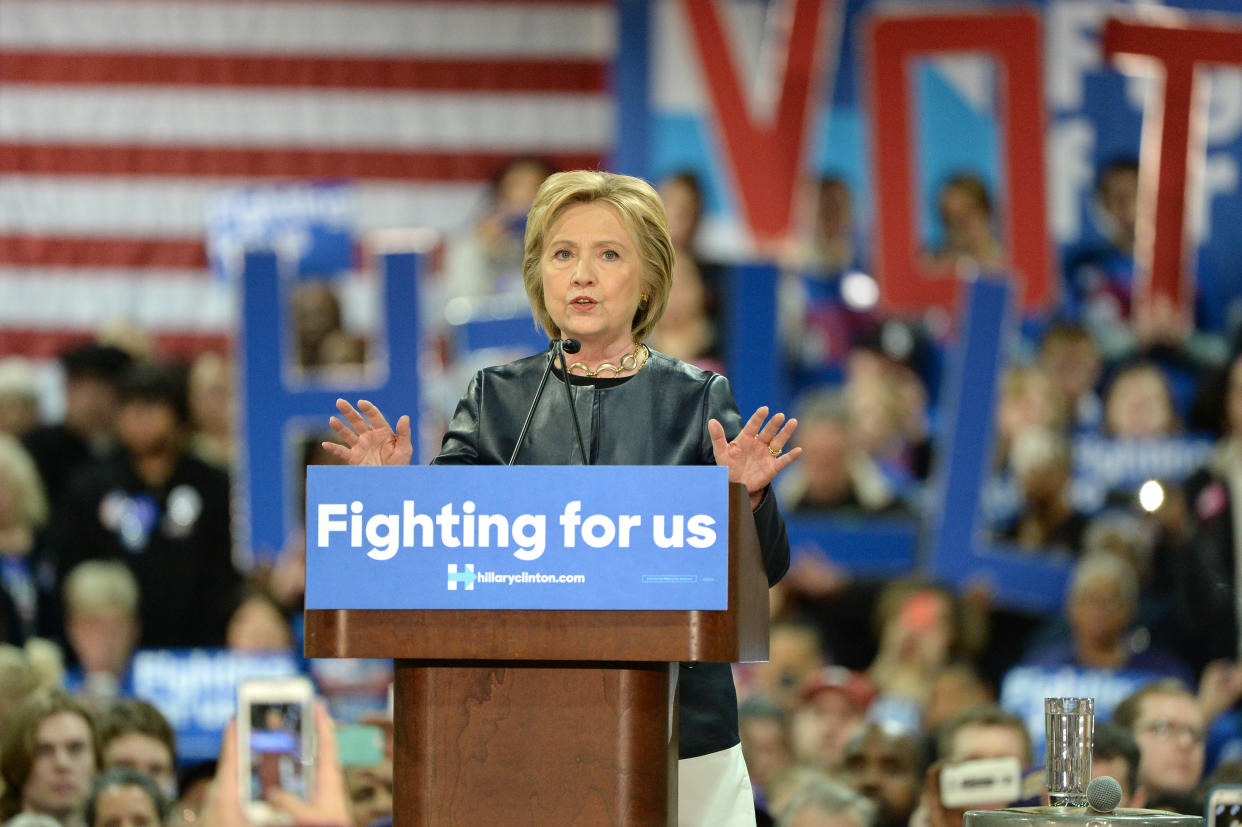Hillary Clinton supporters endured poor mental health after 2016 election, study suggests

Residents of US states that voted for Hillary Clinton in the 2016 presidential election may have endured poor mental health after President Donald Trump won the White House race, research suggests.
Scientists from Duke University and the University of California, San Francisco, analysed more than 499,000 adults who took part in nationwide household surveys.
In December 2016, the month after Trump was elected, people who lived in Democratic states reported a cumulative 54.6 million more days of poor mental health compared to in October.
Read more: One in six children in England has 'probable mental disorder'
The increase in poor mental health days largely persisted in the six months following the election, results suggests.
No such rise was observed among residents of states that voted for Trump.

The president’s 2016 victory and controversial campaign left many concerned about the impact his taking office would have on Clinton supporters, the scientists wrote in the Journal of General Internal Medicine.
A survey carried out before the election suggested more than half (52%) of Americans considered the event a “significant source of stress”, while 49% felt the same way in January 2017.
With the 2020 election result looming, the Duke and San Fransisco scientists set out to uncover how a disappointing outcome could affect a resident’s mental health.
The team analysed data on adults collected in 2016/17 as part of the Behavioral Risk Factor Surveillance System, a joint state and federal annual household survey.
The team looked for changes to three mental health indicators – the number of poor mental health days in the past 30 days, 14 days or more of poor mental health in the past 30 days, and being diagnosed with a depressive disorder.
Read more: Self-harm more common among teens who start puberty early
These were compared between Clinton- and Trump-voting states in the six months before and after the November 2016 election.
Results suggest that in Clinton-voting states, the average number of days on which an adult reported experiencing poor mental health over the past 30 days increased from 3.35 in October 2016 to 3.85 two months later.
“The additional half a day per adult translated into 54.6 million more days of poor mental health in December 2016 alone for the 109.2 million adults living in Clinton-voting states,” said lead author Brandon Yan, from the University of California, San Francisco.
The rise in poor mental health mainly affected white women aged 65 or over.
Younger age groups, men and people with minority ethnic backgrounds experienced no change to the number of poor mental health days they endured in either Clinton or Trump states.
Watch: Seasonal affective disorder may be worse during pandemic
In states that voted for Clinton, the results suggest a 2% increase in the number of people who reported at least 14 days of poor mental health over the past 30 days in December 2016 compared to October.
No such rise was observed in Trump-voting states.
“It is notable that following the election the proportion of those with 14 or more days of poor mental health also increased, which may suggest that some individuals may newly meet diagnostic criteria for major depressive disorder,” said Yan.
The scientists also found a 10% higher margin of victory for Trump in his states was associated with 0.41 fewer days of poor mental health among residents.
Conversely, a 10% higher margin of victory for Clinton in her states was linked to 0.41 more days of poor mental health when she lost out on the White House.
Read more: The mental health effects of 'doomscrolling'
“Depression rates, which were assessed by asking people if they had ever been diagnosed with a depressive disorder, also started rising in January 2017 in Clinton-voting states and in February 2017 in Trump-voting states,” said Yan.
“These increases in depression rates continued into the second quarter of 2017.”
The scientists wondered whether the rise in depression in Trump states may have been linked to increasing opioid deaths, which particularly affected Republican areas.
“Given our findings for 2016, primary care providers, mental health professionals and the public should not overlook the potential effects from the 2020 election,” said Yan.
“Healthcare providers could play a proactive role in monitoring for clinically-relevant signs of mental health deterioration, and offering appropriate support and intervention following the 2020 election.”
Watch: Therapist raises alarm on students’ mental health



